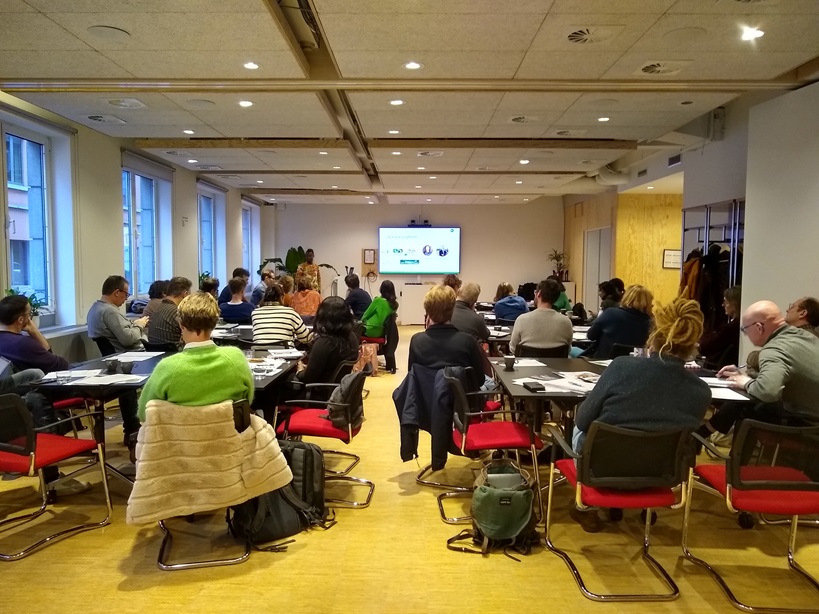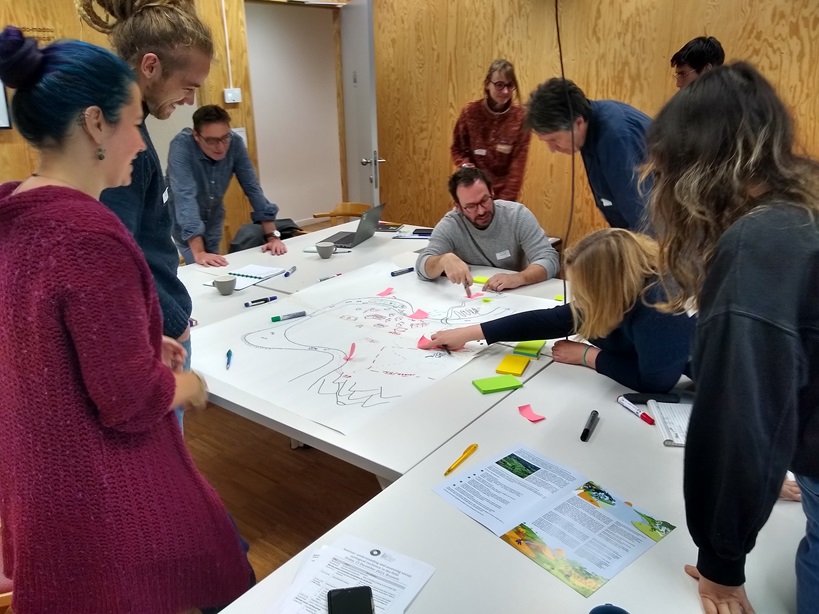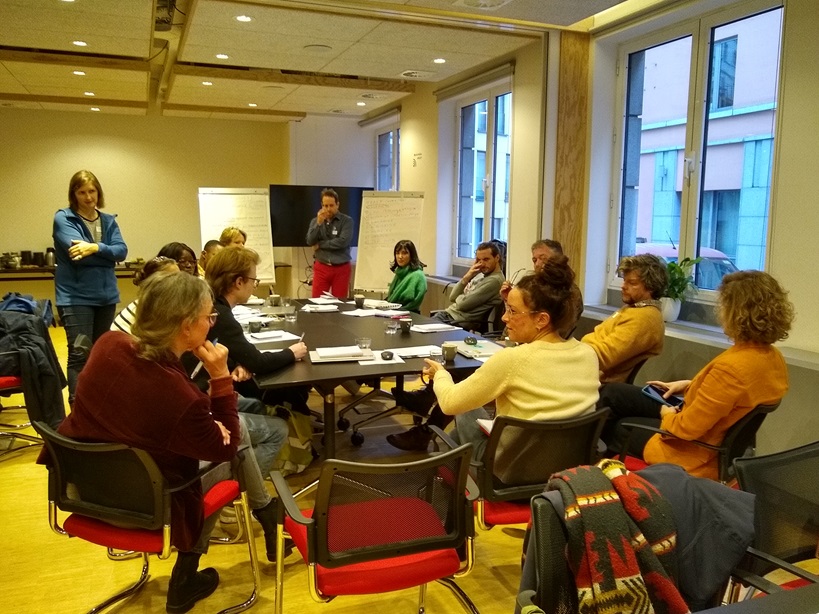This second SECORES seminar, held in Brussels on Friday 15 December 2023, focused on how we can understand and assess social-ecological resilience (SER) in the field. Indeed, SER is a broad, holistic and thus complex concept. It has been translated by SECORES in 4 strategic goals (*).

To forge a better understanding of (the added value of) a the SER approach, a first SECORES 4-pager has been developed. Moreover, SECORES started an exciting learning trajectory on assessing SER. We explicitly don’t use the word ‘measuring SER’ because it is difficult to summarize a holistic complex in one figure. Therefore we focus on how SER can be assessed or understood.
After an introduction on the concept of SER, SECORES started with an overview of a desk study comparing 4 existing tools described in literature with their characteristics, advantages and disadvantages regarding expected output, time investment, methodology, etc.
Four presentations gave more insight how SECORES members and research institutes put certain methods into practice.
- Prof. Jacques Nkengurutse (University of Burundi) clarified what a Master thesis learned us about the use of the SEPLS tool in three communities with a different socio-economic, environmental and geographic context. (SEPLS: Toolkit for the indicators of Resilience in Socio-Ecological Production Landscapes and Seascapes)
- Constant Setondé Gnansounou, PhD Candidate at the University of Namur described how 7 principles of resilience are operationalized in his study on mangroves in Benin.
- Join For Water translated social-ecological resilience in its country programs linked to water ecosystems including an indicator on progress in SER. Kim Vercruysse showed how this indicator is measured in different ways in Uganda and Benin.
- Finally, Leen Broekaert of BOS+ explained how they are developing a pilot project to assess SER by local communities in their program in the Andes region.
In the afternoon, a first working group applied the concept of SER on a fictive case study using the 5 basic questions when using the SER-approach: resilience of what (scope), to what end (objective), for whom (target audience), to what (disturbances) and through what (approach)?
A second working group discussed more in detail the differences of tools, focusing on the SEPLS tool used in Burundi and the experiences of Join For Water using a qualitative indicator on progress of SER in Uganda and Benin.
If you wish more info on this seminar or specific presentations, or if you want to participate in this learning trajectory, please contact us.


